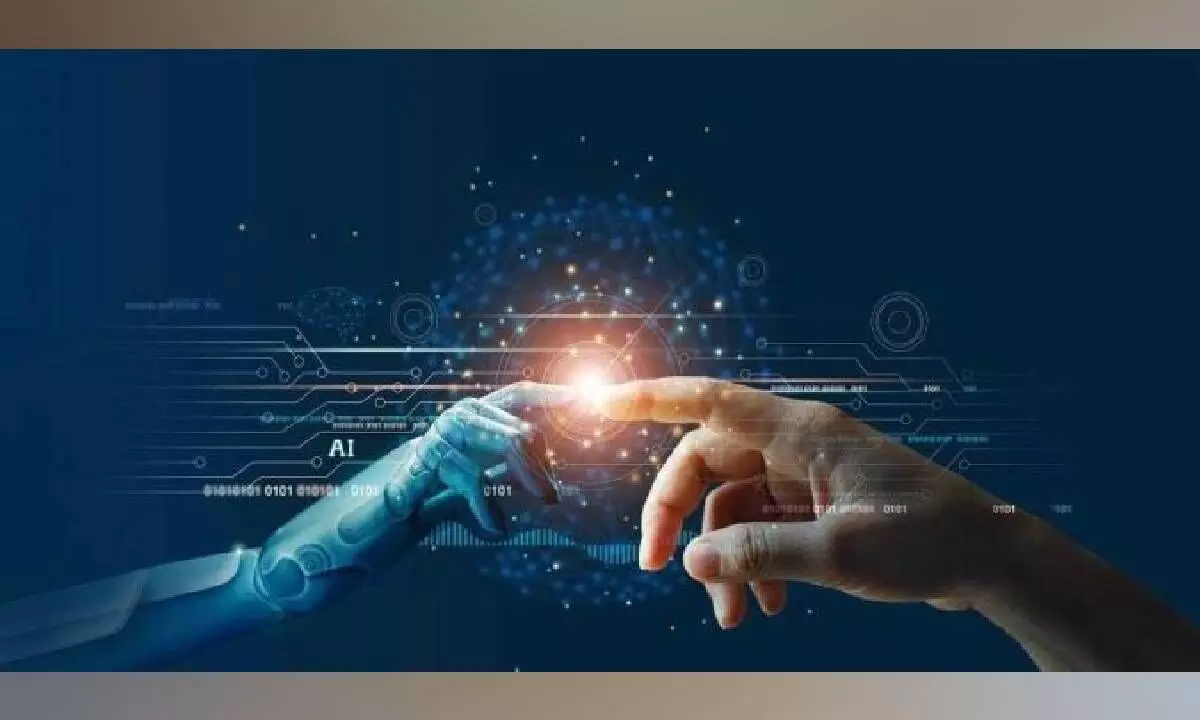AI innovation set to influence business model of IT firms
Wipro on Monday announced the appointment of former Deloitte partner Brijesh Singh as senior vice-resident and global artificial intelligence (AI) head for Wipro Enterprise Futuring. Singh, who was responsible for driving AI and data-led transformation at Deloitte, will now spearhead Wipro’s AI initiative.
image for illustrative purpose

Wipro on Monday announced the appointment of former Deloitte partner Brijesh Singh as senior vice-resident and global artificial intelligence (AI) head for Wipro Enterprise Futuring. Singh, who was responsible for driving AI and data-led transformation at Deloitte, will now spearhead Wipro’s AI initiative. The Bengaluru-based firm had announced that it would invest over $1 billion on AI capabilities over the next three years. It launched a new strategy for the emerging technology. This is apart from the 'Wipro ai360' that houses all of its AI-powered products and solutions under one head. The fact is that it is not only Wipro, but most major IT firms are betting big on AI technology. Some refer it as the ‘tidal wave’ of the technology world after internet. The world’s biggest IT firm, Accenture, had in June announced $3 billion investment over the next three years in its data and AI practice. India’s second largest IT services exporter, Infosys is also betting big on AI capabilities. It has bagged a major deal with one of its existing clients for providing AI and automation services over the next five years, using Topaz, an indigenously developed AI model. The total spend on the project would be about $2 billion. Tata Consultancy Services- the market leader among Indian IT players- has announced plans to train 25,000 engineers to become certified on Microsoft’s Azure Open AI.
It is no wonder that most mid-tier IT firms have started investing heavily on their AI capabilities. This rush among companies for building superior AI capabilities is palpable. With generative AI tools like ChatGPT coming to the fore, the world of technology anticipates major changes in the existing operations. ChatGPT kind of tools can automate many tasks across sectors including HR, finance, content, and coding among others. This phenomenon has already started to play out with many routine jobs getting replaced through ChatGPT kind of tools. Against this backdrop, enterprises have also started deploying such tools to improve efficiency in their operations. Moreover, they have started asking their IT vendors to deploy such solutions.
IT firms are thereby prompted to make more investment in the AI space for better serving their customers. However, experts see two risks that may arise to existing business models of IT companies. Firstly, IT firms currently bill their clients as per the employees (resources) used in the project. The billing in many projects is hour-based. As generative AI tools replace humans with automation tools, IT firms may not able to charge the client for their services. Though many of the IT projects are becoming outcome-based, the major portion of projects is still billed on the resources that are used. Secondly, clients can insource many of their technology work as they can do a lot of their technology-related projects by themselves through automation tools like ChatGPT. This implies that the overall demand for technology outsourcing may come down. Though these are early days to gauge the complete impact of generative AI on IT services, it will not be business as usual for many in the days ahead.

